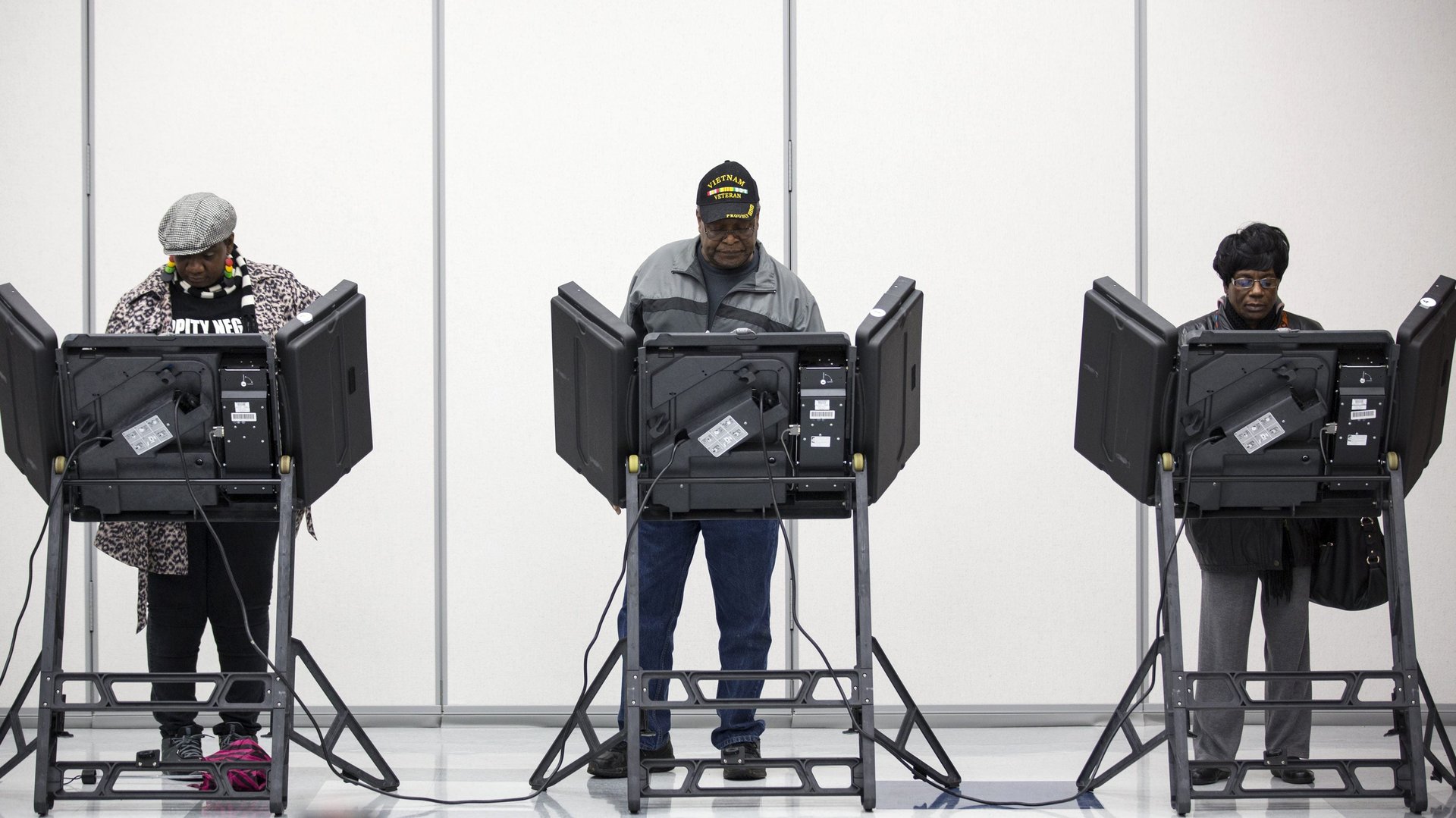The 26 places where Democrats should invest in black voters in 2018
The unlikely win of a US Senate seat by a Democratic candidate in deeply Republican Alabama has underscored the power of black voters—and the terrible job Democrats have done of courting them in the past.


The unlikely win of a US Senate seat by a Democratic candidate in deeply Republican Alabama has underscored the power of black voters—and the terrible job Democrats have done of courting them in the past.
Doug Jones, the former federal prosecutor who beat Roy Moore in the Alabama special election, launched an unusually aggressive campaign reaching out to African-Americans in the state. If Democrats want to recreate his victory elsewhere, they’re going to have to inject the same kind of resources—and then some. Other Republican candidates are unlikely to motivate black Democratic voters to go to the polls in opposition more than Moore, who had waxed nostalgic about the days of slavery.
Black leaders have been urging the Democratic party to do more to motivate voters in their community for a while. They say Democratic candidates have taken black voters for granted and don’t speak about the issues they care most about. They’ve put little effort into convincing African-Americans to vote, and when they do, it’s at the very last minute. Ahead of the Alabama election, a writer for African-American culture magazine The Root condemned the “entire Democratic party,” including Jones, as “trash” in a piece that listed those and other grievances.
Now that the Alabama results have Democrats finally paying attention, African-American voters, activists and their advocates are reminding the party of those failures, and offering advice on how to make up for them. The Brookings Institution has compiled a list of 26 cities with a majority African-American population that could help Democrats win or hold Senate seats in 2018. These would be good places for Democrats to start:
And 31 cities that could make a difference in 2020 for the Senate—and for the presidential race by default.
Some of the cities on the lists are in toss-up states where a sliver of the electorate has the potential to swing the results, such as Michigan and Florida.
They also include places in Republican strongholds such as Texas, Mississippi, and South Carolina that went for Donald Trump by a wide margin in 2016. In the past, Democrats had written off those states as unwinnable. Alabama might change those calculations.
“When society’s assumptions around who should be valued catches up to the actual assets in black communities, we will see the kind of victories in Alabama in all of our communities, businesses and schools,” wrote Andre Perry, a fellow at Brookings metropolitan policy program.